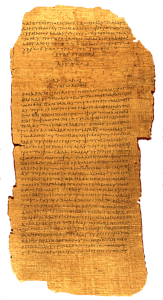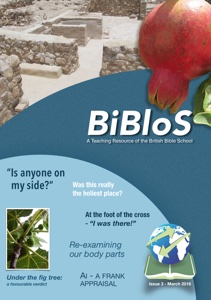It was Benjamin Franklin who defined man as “a tool-making animal”, which is true without being the whole truth. Humans are not animals because we are made in the image of God (Genesis 1:26-27) which means we are both like and unlike Him. One of our shared characteristics is the urge to create, which is where the tools come in. When God made the heavens and earth and all that is within them He spoke and things that previously had no existence came to be. We, like God, can speak and use words to communicate meaning. But we, unlike God, cannot speak things into existence. As I write these words the sun is setting and my study is getting darker. If I want light I have to stand up, step across the room, and press a switch on the wall and only then will there be light. Remaining at my desk and saying “Let there be light” will make no difference unless I have a voice-activated light switch or someone passing by is kind enough to help. We can all see that God’s great act of creating light is infinitely above and beyond our switching on the light in a dark room.
As an aside, why did God create light first? Can He not see in the dark? Or could this be part of God’s great plan from before the beginning of time because “God is light, in Him there is no darkness at all” (I John 1:5)? Even before there were human eyes to see the light God had it there ready because He is light.
God – and those made in His image – use words. These words are more than mere sounds; words communicate meaning and can lead to action. God said and it happened – and it was good. If only this was always the case when humans speak. Yes, we can use words to praise our creator, to encourage one another, and many other good and noble purposes. But there has to be a “but”. We can use words to gossip and grumble, to tear down, to destroy. As a poet has rightly said, “Sticks and stones may break our bones but words can break our heart”. Or, as James was inspired to write:
No human being can tame the tongue. It is a restless evil, full of deadly poison. With it we bless our Lord and Father, and with it we curse people who are made in the likeness of God. From the same mouth come blessing and cursing. My brothers, these things ought not to be so. (James 3:8-9)
When the Apostle John was inspired to start his record of the life of Jesus he chose to echo the opening words of Genesis: “In the beginning”. But John knew that this act of creation involved not only God the Father but also His Son. The word John uses to describe God the Son is significant: “In the beginning was the Word.” The word translated “Word” in most English Bibles is Logos which means – no surprises – word but with the understanding of word as a unit of communication, a word (or command) that makes things happen. As John goes on to explain, “the Word was with God and the Word was God”. He then devotes the following 21 chapters to showing just how Jesus the Logos truly was both Lord and God not only by what he said but also by how He acted.
Steven Whitehead
This article is from BiBloS, a teaching resource of the British Bible School. To read more articles or download the whole of Issue 3, click here.


